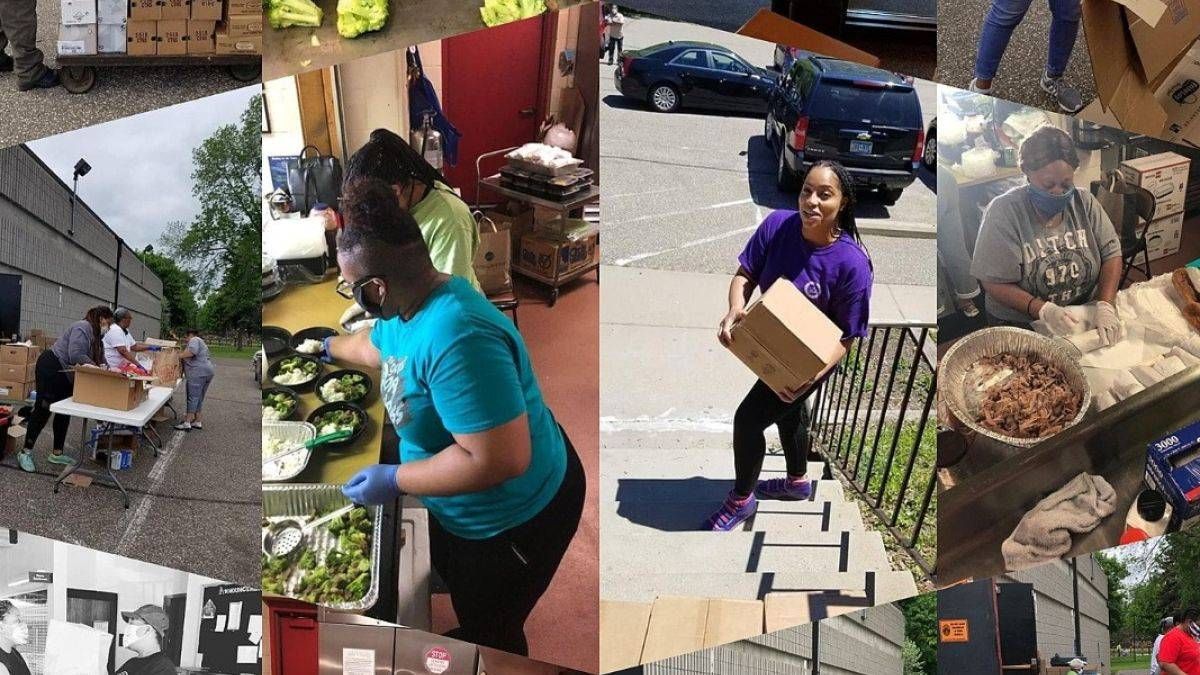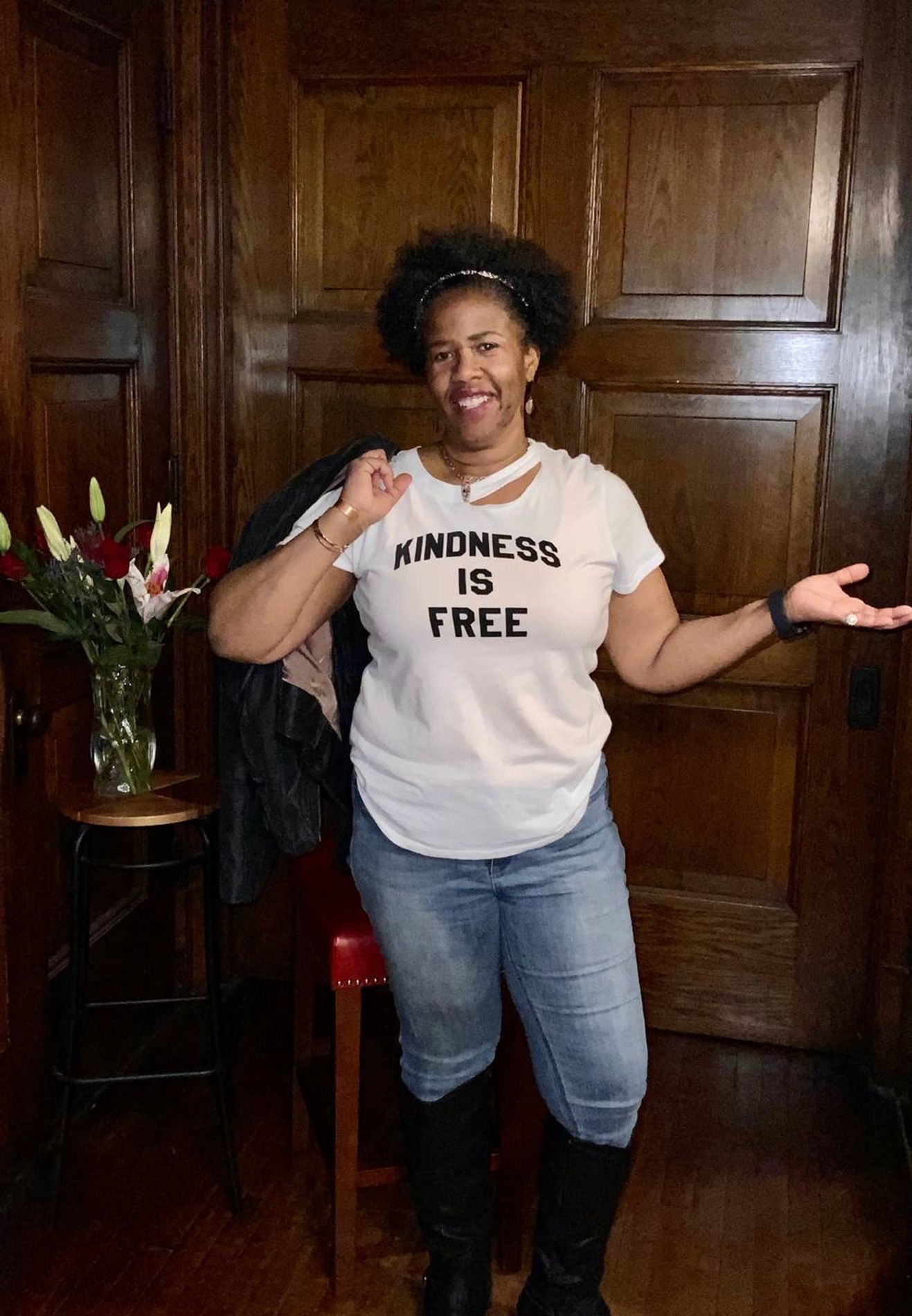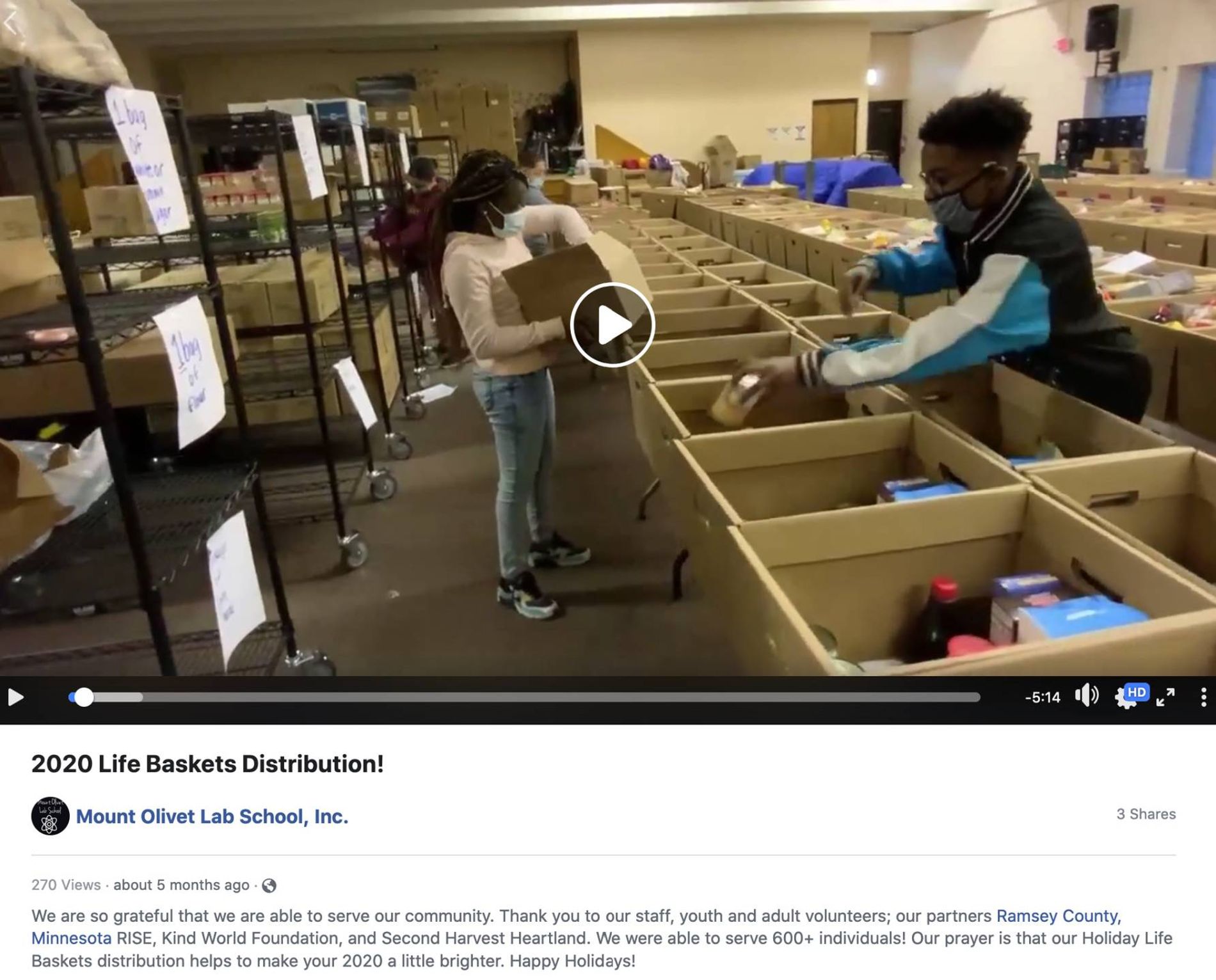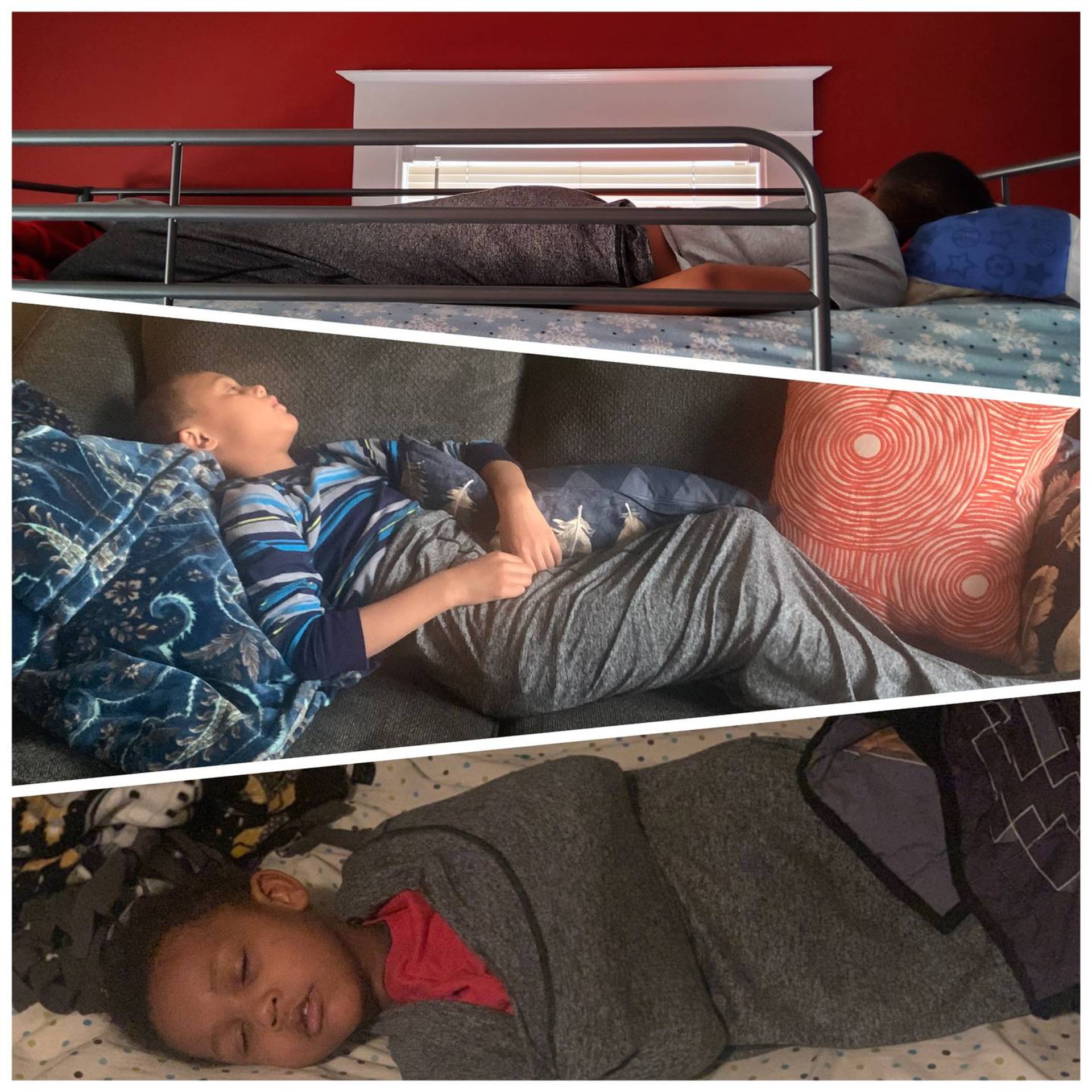Leading Through the Pandemic: Mount Olivet Baptist Church Lab School's Andrea Thomas

“Leading Through the Pandemic” is a series focused on Twin Cities leaders and their reflections on the year of living during a pandemic and leading their teams into new ways of working.
In April 2021, we spoke with six Twin Cities leaders from various sectors – health care, independent business, nonprofit organizations, and education and religious institutions – about their experiences in decision-making, staff management and service to their audiences, patients and members during the last year of COVID-19 and civil unrest. Without a doubt, 2020 tossed countless challenges at any semblance of stability, but the topsy-turvy year also inspired these leaders’ renewed hopes for a more sustainable future, one they might not have imagined without first grappling with so much unexpected turbulence.

Andrea Thomas is First Lady at the Mount Olivet Baptist Church in the Summit-University Avenue community in Saint Paul and Executive Director of the Mount Olivet Lab School, Inc. Established in 1980 as a community outreach of Mount Olivet Baptist Church, the Lab School focuses on providing services and wholesome, structured activities for children and families in a safe place. The Lab School provides tutoring, enrichment classes in music and the arts, nutritious meals, part-time employment and volunteer opportunities to members of the community and members of Mount Olivet.
In her own words, Thomas recounts all the good things that have come out of a stressful, tragic year, while also preparing leaders to take the work forward in serving others with compassion.
A PERSONAL NOTE ON MY BACKGROUND
I am originally from Nashville. I earned a degree in architecture from the University of Tennessee at Knoxville; however, after my family relocated to Saint Paul 23 years ago, I made a career shift into ministry as the Youth Director for the Mount Olivet Baptist Church (MTO). As the Youth Director and as the pastor’s wife, I inherited the director’s position of the Lab School, which was organized in 1980 by the wife of the former pastor of the church. I think that it was just expected that that I would continue the program on the same trajectory in which it had always moved. In some aspects, it did continue with similar programming and it has always remained true to the mission of ensuring the development of children and families in the immediate community. However, seeing the current state of children and youth in the community, coupled with an ongoing passion I have had for homelessness and food insecurity, my focus began shifting towards developing strategic partnerships that would address how, combined, the church and Lab School could minister to the totality of youth in the communities we serve and reduce the disparities - particularly food insecurity - that sometimes keep families from being successful.
OUR CURRENT PHASE
The facility is not yet open for what has been known as our regular programming. However, it has been transformed into something that far outweighs anything I could have ever imagined. Inside our facility, you will find perhaps 10 volunteers on our distribution day (two to six on any given prep day). However, over the last months, you might see 700 or more individuals represented in the vehicles and walk-ups that pass through our MTO “Grab N Go” food and basic needs distributions.
THE CHALLENGES OF MEETING COMMUNITY NEED
In March of 2020 - I remember it was the second Sunday as I drove to worship listening to MPR, waiting for the governor’s announcement - I thought, “What does this mean for Lab School…for the church? OMG! We need to sanitize EVERYTHING . . . Now!” Fast forward a day or two: My daughter came to me and asked if we were still going to have our Kids Café because two of our participants didn’t have food at home for the week. I told her, of course, because that’s just what we do, but we will have to pack the food up to go. That Wednesday began our very first Grab N Go. My next thought was about the seniors in our congregation, so I enlisted the help of our deacons to call each of them and our Lab School team built care packages with site-cooked meals, cleaning products and masks for those who wanted them. We kept this process going with only a few volunteers because of the pandemic . . . and with me really watching the bottom line. At that time I was personally supporting the purchase of adult food items as there was no outside reimbursement program for adult meals and our youth numbers had fallen tremendously. So at that moment, I did wonder if what we were doing would be sustainable.

OUT OF TRAGEDY COME VITAL PARTNERSHIPS
One of the best things to come out of COVID-19 and the George Floyd tragedy is that they have brought about opportunities to connect with people that I might not have otherwise met. Through just a single new introduction, through one particular person, donations prompted by the George Floyd killing began to find their way to the inner community instead of stopping at the edge of Dale Street and University Ave. Some people are simply afraid to go beyond that point if they don’t personally know the community. That same person connected me with information to apply for CARES Act funding [Coronavirus Aid, Relief, and Economic Security Act of 2020] through the Local Resource Board. It was a process, but well worth the effort as we were granted $40,000 to provide cooked meals for seniors.
Today, we see more people than ever accessing the services of food shelves. Our challenge and everyday charge is to do it in a way that is welcoming, uplifting and allows our participants to retain their dignity.
Over the past year, Lab School has served more than 14,000 individuals from more than 34 zip codes. We have prepared and distributed more than 20,000 site-prepared meals. Through partnerships with Second Harvest Heartland, Central World Kitchen, Ramsey County Sheriff’s Foundation and the Sanneh Foundation, we were able to distribute fresh produce, additional prepared meals and Personal Protective Equipment (PPE) to the community.
Because of individual contributions and a generous gift from the Surviving the Game Conference, we were able to distribute funds to students who were displaced by COVID when college campuses unexpectedly closed in 2020. This was done in memory of Mr. Lee Roy Hawkins, Sr. He was a local musician who believed in education and supporting the dreams of our youth. We are providing opportunities for youth and college students to volunteer in a space that is safe, but also offers an opportunity to lead.
In providing these services to the community, my directive has always been that we do not pour out anything into this community that would not be dropped into predominantly Caucasian communities. I want the individuals that we serve to receive the BEST that I can possibly acquire for them. This isn’t driven out of a sense of arrogance, but it’s based on my belief that we should esteem others more highly than we esteem ourselves. Additionally, for the BIPOC culture that has traditionally been marginalized, it is not my place to do more harm by tossing scraps from the table.
More recently, we have been distributing food while the church has been hosting COVID-19 vaccine clinics. It's been another way of assuring that those who are marginalized and most at-risk have access to both food and a fighting chance against the coronavirus. As we anticipated the verdict in the Derek Chauvin trial and the Daunte Wright funeral, we distributed spa boxes and compression sleep pods for self-care. Trauma has been and still is a real issue in the community. The spa boxes contain body butter, lip balm, essential oil roller ball, a scrub and a coordinating bar of soap. This is made by Body Love Products, a company owned by one of our church members, Sabrina Denson Jones. The compression sleep pods are actually a sleep sac that have a similar effect as a weighted blanket, except you ease them on, much like a sleeping bag or sack, and the material is much lighter, almost like a compression shirt.

"ROLLING BREAKS" AND TIME TOGETHER
Today, staff is okay. Some are taking what I will call “rolling breaks” so that we are not all gone at once. Most refer to our time together as their happy place or their Zen time. I don’t think that they mean it in the sense that it gives them any kind of warm fuzzy [feeling]. I believe that, for the last year, they have just wanted to see something good and be a part of something good and just feel good about what is going on around them.
The initial downtime during the mandatory COVID-19 Safe-at-Home Order gave me real time to reflect and plan. Now, there doesn’t seem to be much extra time for that as the need for services continues to rise due to the increase in unemployment. The point is that EVERYTHING has become much more intentional and proactive instead of reactive. Taking that approach, things began to fall into place much better.
As for me, the work has not come without challenges, but it has come with even greater reward. I probably do work too much now, but I try to get in the self-care piece every now and then. I am becoming more intentional about that with help from friends and family. One of the best things is that this has been something that I have been able to build and shape with my older daughter. (My younger daughter only comes in on Saturday.) I’ve also enlisted my son for social media promotion and web development. So, it gives me opportunity to check in with them regularly. I’m looking forward to a bit of time somewhere quiet and warm where I can just sit and reflect on all the good things that have come out of a year that has been tragic by so many accounts. I’ll also take time to breathe deeply and start to heal from the moments that may not have been so great. I’ll trust God to begin that work in me.
The Chauvin trial has stirred up a tidal wave of trauma in Minnesota’s communities of color for whom racialized trauma is already a daily experience. So we talked to author and therapist Resmaa Menakem, who shares five ways that people can take care of themselves during the trial.
In a year that has proved to be a turbulent challenge for so many Minnesotans, the Black church has continued to serve the spiritual and health needs of its congregants of color. The Stairstep Foundation’s CEO Rev. Alfred Babington Johnson shares some of the ways in which the state’s Black churches are working together to provide shelter in what has been an onslaught of storms.
George Floyd’s police killing has brought together communities in a show of resilience – but it’s also revealed deep-seated racial inequities in access to healthy food now that the Lake Street area, where many grocery stores were damaged or destroyed, has become a food desert. Data Reporter Kyeland Jackson examines how that lack of food access is actually rooted in racism-charged issues related to access to jobs and opportunities to build wealth.
